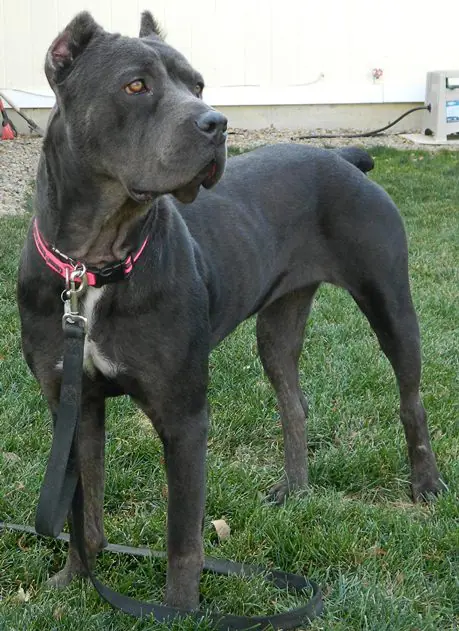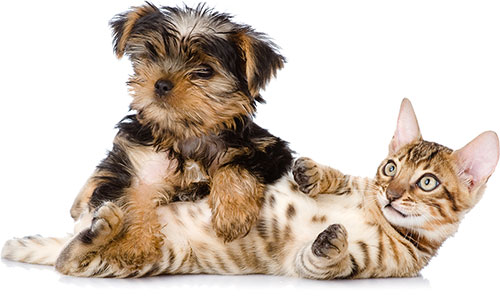Cane Corso Italiano

American Bulldog Bullmastiff Cane Corso Italiano Dogue de Bordeaux English Bulldog Pit Bull Terrier Rescues Staffordshire Bull Terrier
2950 Grand Avenue, Phoenix, AZ 85017, USA

Bullmastiff Cane Corso Italiano Dogue de Bordeaux Mastiff Neapolitan Mastiff Rescues Tibetan Mastiff
Specializing in the Rehabilitation, Fostering, Rehoming and Assessing of Molosser type breeds acr...

-Dogs Bull Terrier Bullmastiff Cane Corso Italiano Dogue de Bordeaux Mastiff Neapolitan Mastiff Rescues
Ivy Roads Canine Rescue is a small, non-profit canine rescue located in the regions in and around...

New Milford CT 06776
Inspired by over 25 years of dedication as a Breeder of Majestic Champion Bullmastiffs, our Rescu...

67 Chemin Legros, Sainte-CĂ©cile-de-Masham, QC J0X 2W0, Canada
France Turcotte

Coatesville, PA 19320, USA
Big Paws, Big Hearts is a local rescue dedicated to helping abandoned and surrendered cane corso ...

The CCAA (Cane Corso Assocation of America) Cane Corso Rescue Committee was formed in 2005 solely...

New Jersey Turnpike, Monroe Township, NJ 08831, USA
Please note that while our registered location is Monroe, NJ, we have dogs available through out ...
Showing 9 results
Cane Corso Italiano

Breed Group : WORKING
Origin : Italy
Average Height : 23" - 27"
Average Weight : 88 - 110 LBS.
Life Span : 10 - 11 years
Photo Courtesy of : Big Dog Huge Paws
-
Size
1 2 3 4 5 6 7 8 9 10 -
Energy
1 2 3 4 5 6 7 8 9 10 -
Intelligence
1 2 3 4 5 6 7 8 9 10 -
Ease of Training
1 2 3 4 5 6 7 8 9 10 -
Hypo-Allergenic
1 2 3 4 5 6 7 8 9 10 -
Shedding
1 2 3 4 5 6 7 8 9 10 -
Good with Kids
1 2 3 4 5 6 7 8 9 10 -
Good with Other Pets
1 2 3 4 5 6 7 8 9 10 -
Guard Dog
1 2 3 4 5 6 7 8 9 10
Cane Corso Italiano Rescue Organizations

American Bulldog Bullmastiff Cane Corso Italiano Dogue de Bordeaux English Bulldog Pit Bull Terrier Rescues Staffordshire Bull Terrier
2950 Grand Avenue, Phoenix, AZ 85017, USA

Bullmastiff Cane Corso Italiano Dogue de Bordeaux Mastiff Neapolitan Mastiff Rescues Tibetan Mastiff
Specializing in the Rehabilitation, Fostering, Rehoming and Assessing of Molosser type breeds acr...

-Dogs Bull Terrier Bullmastiff Cane Corso Italiano Dogue de Bordeaux Mastiff Neapolitan Mastiff Rescues
Ivy Roads Canine Rescue is a small, non-profit canine rescue located in the regions in and around...

New Milford CT 06776
Inspired by over 25 years of dedication as a Breeder of Majestic Champion Bullmastiffs, our Rescu...

67 Chemin Legros, Sainte-CĂ©cile-de-Masham, QC J0X 2W0, Canada
France Turcotte

Coatesville, PA 19320, USA
Big Paws, Big Hearts is a local rescue dedicated to helping abandoned and surrendered cane corso ...

The CCAA (Cane Corso Assocation of America) Cane Corso Rescue Committee was formed in 2005 solely...

New Jersey Turnpike, Monroe Township, NJ 08831, USA
Please note that while our registered location is Monroe, NJ, we have dogs available through out ...
Showing 9 results
-
The Cane Corso Italiano is the original Cane Corso breed.
This particular breed was originally bred in Greece and later brought and grew in popularity in Italy.
The name derives from the Latin "Cohors" which means "guardian," "protector."
This is not a breed to choose if you are a 1st time Dog owner, they take protecting property seriously. Owners must have the experience of dog training and leadership quality to keep them under control, at all times This is a breed that really demands it's owner to be the "Alpha"/leader to respect and obey you.
These dogs originally developed in Greece, were brought back to Italy and bred with native Italian breeds during the Roman Empire by armies that had occupied the Greek islands. The modern Corsi are the decedents of these crosses, along with the Neapolitan Mastiff. Originally, the Corsi were dogs used in battle, charging ahead with buckets of flaming oil strapped to their backs.
These early breeds of Corsi are believed to be bigger than their modern counterparts. Corsi ultimately adapted to other jobs like farming, livestock droving, guarding farms and henhouses, and even boar hunting.
This breed began to dwindle in part thanks to invasions of the Italian peninsula, various political upheavals, and mechanized farming. It was in the 1970s that a group of Italian fanciers joined forces to revive the breed.
Its direct ancestor is the "Canis Pugnax" (the old Roman Molossian), of which he is the light version employed in the hunting of large wild animals and also as an "auxiliary warrior" in battles. For years he has been a precious companion of the Italic populations.
Employed as property, cattle and personal guard dog and used for hunting purposes too. At one time this breed was common all over Italy.
They are named for the Molossi, an ancient Greek people who are believed to have bred large, big-boned guardian dogs of Mastiff type. These dogs originally developed in Greece, were brought back to Italy and bred with native Italian breeds during the Roman Empire by armies that had occupied the Greek islands.
The modern Cane Corsi are the decedents of these crosses, along with the Neapolitan Mastiff. Originally, the Cane Corsi were dogs used in battle, charging ahead with buckets of flaming oil strapped to their backs. These early breeds of Corsi are believed to be bigger than their modern counterparts.
Corsi ultimately adapted to other jobs like farming, livestock droving, guarding farms and henhouses, and even boar hunting. The Corso population began to dwindle in part thanks to invasions of the Italian peninsula, various political upheavals, and mechanized farming. It was in the 1970s that a group of Italian fanciers joined forces to revive the breed. In 2010, the breed was recognized by the AKC. -
Temperament
Cane Corsos are intelligent and serve to protect rather than live a life as a 'pet'. Couple that with a willingness to please, and the ability to form a close attachment with its primary owner, and you've got a great dog on your hands.
Loyal and quiet around the house, the Cane Corso is often described as active and even-minded, making it an excellent watch and protection dog. And even though it may look intimidating, Cane Corso Italiano is wonderful with children in the family because this dog is protective yet gentle. It will want to spend as much time with its family and its primary owner as possible.
Right from the beginning, Cane Corso Italian Mastiff puppies must have strong leadership and training. It will pick up the basic commands quickly, so the most important part is controlling and moulding the Corso's strong protective instinct.
The Cane Corso is always suspicious of strangers, so owners must never encourage aggression. As well, the Cane Corso doesn't always respond well to new things and situations, such as animals and people - you should be careful when introducing your Cane Corso to new experiences. Be sure to properly socialization your puppy to control the dog's natural protective instincts.
It's important to note that the Cane Corso Italian Mastiff is not a fighting dog. It won't go out looking for a fight; however, it will not back down from a dog that tries to dominate it. This breed needs an experienced owner who knows how to establish natural authority over the dog. Once your Cane Corso is fully trained and knows what it can and can't do, this dog will be an excellent companion and family pet.
Health Problems
Some of the most common Health Problems associated with Cane Corso Italian Mastiff dogs are hip dysplasia, Bloat, mange, and eyelid abnormalities such as Cherry Eye.
To ensure that your new dog will be less prone to hip dysplasia.
Grooming
A light shedder, grooming the Cane Corso Italian Mastiff is easy due to its short coat. But even though there's not much of a coat to brush though, it can still be a big chore - after all, this is a big dog, and all dogs require regular daily/weekly grooming.
Exercise
You may have heard of the Cane Corso Italian Mastiff referred to as the "coursing mastiff." This is a nod to the fact that the Cane Corso can exceed other mastiff breeds in terms of athleticism, agility, speed, energy level, and sense of adventure.
The Cane Corso Italiano is athletic, requiring a substantial amount of daily exercise. That being said, it's no surprise that this breed needs a substantial amount of daily exercise. Because it boats high stamina, the Cane Corso is a great companion for long jogs or hikes.
This isa a dog that does best in a house with a large fenced in yard; however, it can live in an apartment if it gets enough daily exercise.
In combination with daily exercise, the Cane Corso Italian Mastiff needs personal interaction and lots of companionship. If it doesn't get enough exercise or attention, it may become destructive.
Training
The Cane Corso Italian Mastiff is best owned by an experienced handler, not a first-time owner. This is because it is a powerful dog and can be dominant. From the beginning, the owner needs to be firm and consistent at all times and assert his or her role as the pack leader. Once trained, the Cane Corso Italian Mastiff is obedient and willing to please.
Agile and intelligent, the Cane Corso can be taught using a variety of training methods. You will find that your dog will be responsive to obedience training, and classes are recommended at the puppy stage. Show strong leadership while training your puppy as it is an important step when controlling and molding your Cane Corso's strong protective instinct. As well, you will also need to be careful when introducing your dog to new places and people - the Cane Corso likes the status quo, and may react strongly to new experiences.
To take control of its powerful need to protect, the Cane Corso must be trained so it only reacts when a real threat is present.
Be sure to socialize your Cane Corso Italian Mastiff as early as possible so it can learn to get along with other people and animals.






